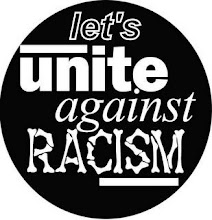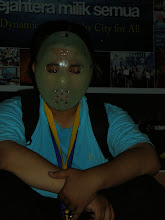 Irene Fernandez
Irene Fernandez"… for her outstanding and courageous work to stop violence against women and abuses of migrant and poor workers."
Irene Fernandez is a Malaysian campaigner for the rights of the poorest: migrant workers, farm workers, domestic workers, prostitutes and AIDS sufferers. She is still working, even though a conviction and year’s prison sentence hangs over her head on the trumped-up charge of “maliciously publishing false news”.
Irene Fernandez was born in Malaysia in 1946 and has three children and several foster children. She began her career as a high school teacher. She became involved with the Young Christian Workers Movement (YCW), based in Brussels, and in 1970 gave up her teaching career to become a full-time organiser for young workers. She became national president of the Malaysian YCW in 1972-75 and was a member of the international committee from 1973-75. During that time, she was able to organise the first textile workers union and began programmes to create trade unions in the free trade zones. She also focused on the development of women leaders in the labour movement.
In 1976, she joined the Consumers Association of Penang (CAP) and worked on consumer education, launching the consumer clubs for secondary school children to teach them about basic needs, safety and protection of the environment. She also began a consumer programme for rural women, linked to a breast-feeding campaign and the Nestlé boycott.
In 1986, she led campaigns to stop violence against women. Various women's groups mushroomed as a result of these campaigns. One was the All Women's Action Society, of which Fernandez was president for five years. It is now one of the strongest women's advocacy groups in Malaysia. The Domestic Violence Act, Sexual Harassment Code and changes to the laws related to rape are all a result of its work. That same year, she was the founder member of Asia Pacific Women Law and Development (APWLD). This regional organisation was designed to bring together women lawyers and activists to look at women’s law across the Far East. She was director for more than 10 years.
From 1992, she was the chair of the Pesticide Action Network, working for the elimination of pesticides and developing sustainable agriculture, which led to campaigns on health, against GMOs, and taking back control of seeds. Fernandez also founded the Tenaganita organisation, which she still runs, in 1991 in Kuala Lumpur. It campaigns for the rights of foreign workers, up to three million of whom are in Malaysia. Foreign workers have been lured into the country, as a deliberate policy of the Malaysian government and have played a critical role in the country’s recent economic success, but many now find themselves suffering the most appalling abuses and are detained in camps as undesirables.
Tenaganita, with 15 staff and 150 volunteers, works to document these problems, but also runs a half-way house for prostitutes with HIV, and a number of other programmes relating to migrant and poor workers’ health, education, awareness and human rights. It also works with organisations in neighbouring countries to provide health, legal and pre-departure information for workers. In 2005 Tenaganita drew attention to controversial plans by the Malaysian government to deport more than a million foreign migrants.
In 1995, Fernandez published a report on the abuse of migrant workers, cataloguing the malnutrition, physical and sexual abuse and the appalling conditions the workers endure, and set out the facts about the detention camps where they end up and where many of them die. The research included interviews with as many as 300 migrant workers. The embarrassed government admitted that 46 people had died of various medical conditions in their detention centres, but, in March 1996, Fernandez was arrested at home and charged with ‘maliciously publishing false news’. Her trial became the longest in Malaysian history and many of the witnesses she was relying on were deported before she could make her defence. In 2003 she was finally found guilty and sentenced to a year in prison, having by then appeared in court more than 300 times. She is currently on bail pending an appeal. While on bail, her passport is confiscated and she is banned from standing for election. During the trial, the offices of Tenaganita were bugged and raided twice by government officers. The funds for their half-way house for women and children with HIV were stopped.
Despite harassment and intimidation Fernandez has courageously refused to limit her work or blunt her message, even though the prison term hangs over her head. She has never used or advocated violence and has always worked in an open and legal way. She was therefore a prime candidate for adoption by Amnesty International, which has been unequivocal in its support for her.
Quotation “We must change the rules of the global economy, for it is the logic of global capitalism that is the source of the disruption of society and of the environment. The challenge is that even as we deconstruct the old, we dare to imagine and win over people to our visions and programs for the new.”
Irene Fernandez



































No comments:
Post a Comment